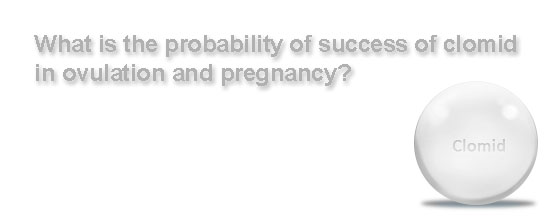The main purpose of Clomid is to induce ovulation in women who do not ovulate or do not ovulate regularly. Between 70 and 80 percent of women taking Clomid will ovulate during the first cycle of treatment. Of course, ovulation is only the first step. Your chance of getting pregnant within a few cycles is approximately 35 percent. If you haven’t gotten pregnant in six months, it’s time to switch to another treatment.
What are the chances that Clomid will work in the first month?
Depending on which studies you refer to, the probability of conception within a single cycle of Clomid treatment is between 7 and 30 percent. The effectiveness of Clomid varies depending on the cause of infertility.
Keep in mind that those who do not have fertility problems are about 25 percent more likely to get pregnant in any given month. If you don’t get pregnant in a month, don’t panic. The need for more than one cycle is common.
What are the chances of getting pregnant after many cycles on clomid?
A literature review published in the journal Human Reproduction reviewed several studies on clomid. In total, Clomid success rates for more than 5,000 women were included. In this study, they found that:
- 73 percent eventually ovulated on clomid
- 36 percent eventually reached pregnancy
- 29 percent gave birth
The birth rate is lower than the pregnancy rate due to miscarriages. Clomid does not seem to increase the risk of miscarriage.

Other studies have reported that when using Clomid, the percentage of successful pregnancies is between 30 and 40 percent. Again, the birth rate will be lower due to pregnancy loss.
However, the success of Clomid (clomid ovulation) also depends on why you can’t get pregnant. Clomiphene citrate may work well for people with ovulation problems. But what if ovulation isn’t a problem?
Another study, conducted in Scotland, looked at success rates for couples who were found to have infertility. The couples were randomly assigned to one of three groups: “wait-and-see”, clomid-only treatment, or clomid with IUI. The most effective treatment group was the IUI plus Clomid group, which achieved a 22 percent fertility rate. The clomid – only treatment group did the same with couples who received no treatment at all.
Does the day you start treatment with clomid matter?
Clomid is taken for five days. Treatment can be started as early as the 2nd day of the menstrual cycle or as early as the 5th day. However, most doctors either prescribe clomid on days 3, 4, 5, 6, and 7, or take it from you on days 5, 6, 7, 8, and 9.
Does it matter which protocol your doctor chooses? Yes and no. In order to cause ovulation, treatment is carried out from day 5 to day 9. If your doctor wants to” improve ” ovulation, you will probably take Clomid on days 3 to 7.
However, when it comes to pregnancy and ovulation success rates, studies have found no advantages or disadvantages.
Your chances of getting pregnant are the same, regardless of which protocol your doctor prefers to start taking Clomid.
Remember that while you may be mostly familiar with clomid treatment and possibly IVF, there are actually many more infertility treatment options that you should consider. Always talk to your doctor if you’re concerned about the next step or if Clomid isn’t working as well as you hoped.